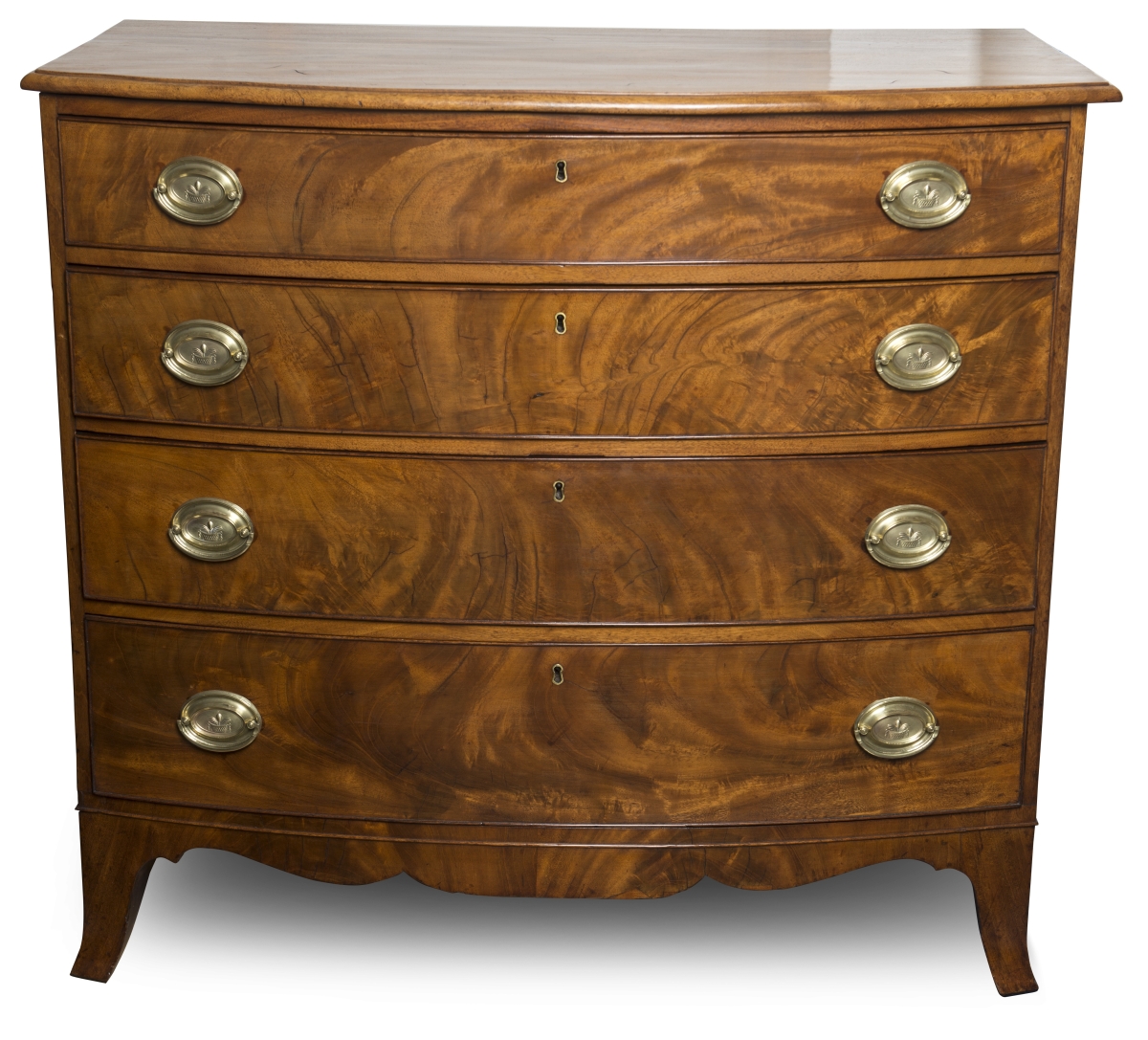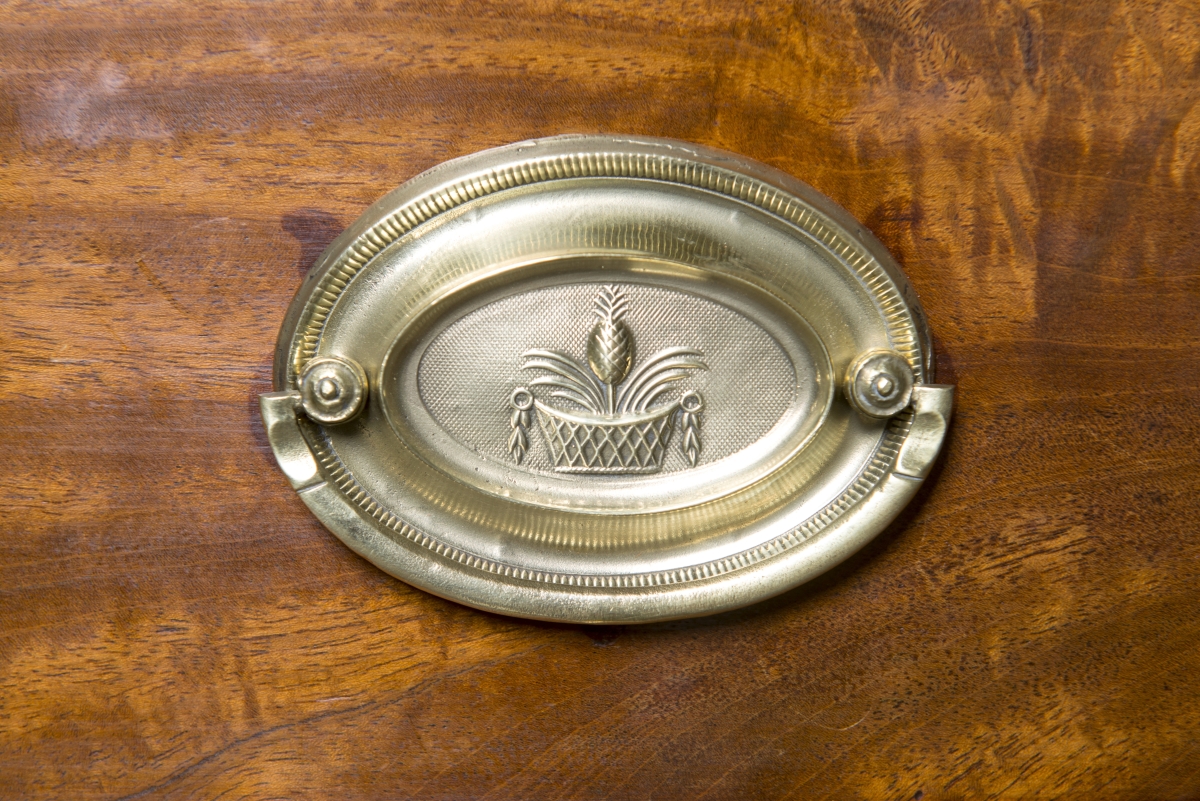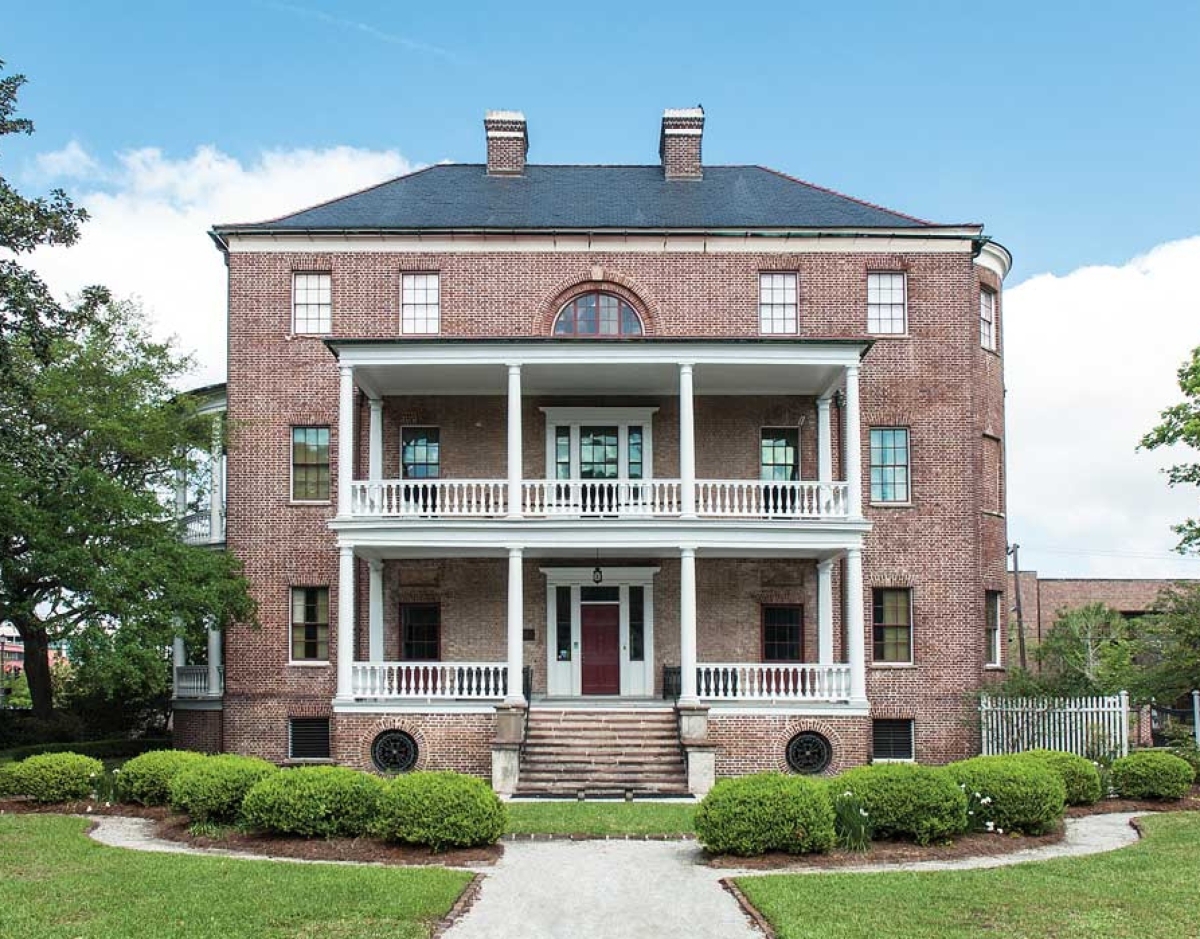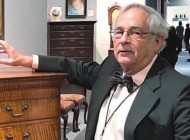CHARLESTON, S.C. – The Charleston Museum announces that the E. Milby Burton Trust for Historic Houses has acquired a distinctive Charleston-made chest that will be on display at the museum’s Joseph Manigault House. The piece was made by Robert Walker’s shop, a prolific producer of local furniture in the early Nineteenth Century, but it is of particular historical interest because it is signed by Boston, an African American who worked for Walker. Previously a slave, existing records indicate that Boston was free by 1795.
Boston penciled his signature and the date, “October 18, 1805,” on the top support rail directly beneath the chest top, completely hidden unless the top were removed. Historical evidence has long shown that African Americans, both enslaved and free, were crucial members of the skilled craftsmen trade in Charleston and provided the labor force that helped build the city and its artistic treasures. Boston’s signature, audaciously indiscreet, is further testimony to this. Although the signature will not be visible, the museum will present an image of the signature and an accompanying explanatory panel with the chest.
The display of this piece at the Joseph Manigault House will further reinforce museum efforts to tell the story of African Americans at its two historic houses. In 2016, the museum updated its interpretation of the kitchen building at the Heyward-Washington House to better present the role of urban slavery in Charleston and more thoroughly examine the lives of the slaves who lived and worked in this building. The museum was recently granted the South Carolina African American Heritage Commission’s 2017 “Preserving our Places in History” project award as a result of this effort.
“We are so grateful to the Burton Trust for purchasing this piece for the Joseph Manigault House,” says director Carl P. Borick. “The Trust has funded many projects and purchased a number of items for the museum’s historic houses over nearly four decades, but this may be the most significant, a key testament to the
critical role that African Americans played in Charleston’s history.” Chief curator Grahame Long notes, “While the paper records tell us that African Americans, both free and enslaved, worked and produced in the shops of Charleston’s historic craftsmen such as Walker, practically none of their products do. Much of their finished works were never credited and thus remained anonymous. Thanks to Boston’s signature on this particular piece, however, we can say for sure that he was present and moreover had a significant hand in the success of Walker’s cabinetmaking business.”
The E. Milby Burton Trust for Historic Houses was founded in 1979 to honor Milby Burton, the longtime director of the Charleston Museum. Its purpose is to support the museum’s historic houses, which Burton helped acquire for the museum. Since its inception, the trust has contributed nearly $400,000 to various projects at the Heyward-Washington and Joseph Manigault Houses and to the purchase of objects on display there.
The Joseph Manigault House is at 350 Meeting Street. For more information, www.charlestonmuseum.org or 843-722-2996.




.jpg)



